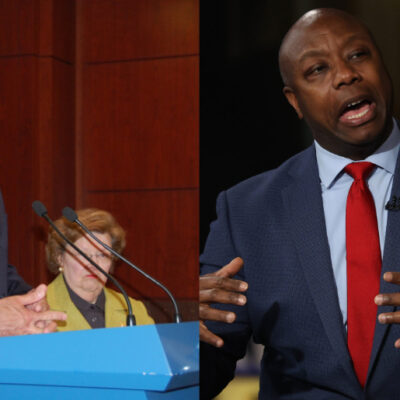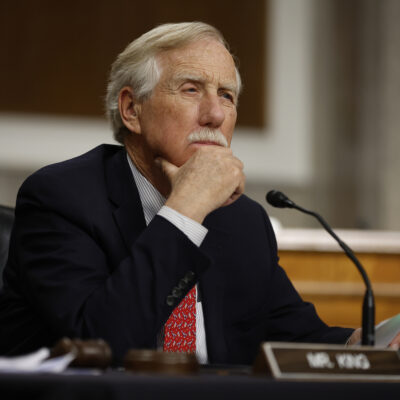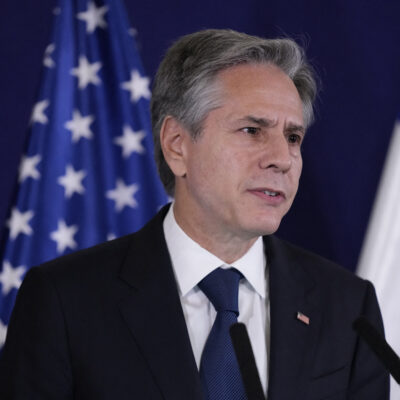Columbia University students hold divestment referendum this week
The university's president has stated that any divestment decisions are made by the university’s investment group, not by student referenda

InSapphoWeTrust / Flickr
Columbia University
Columbia University’s Columbia College will hold the first BDS referendum in its history this week, during which students will vote on whether they believe the school should divest its holdings and interests in a number of companies, including Bank Hapoalim, Hyundai and Boeing.
Columbia is seen as a critical campus by both pro-Israel and BDS activists around the country, due in part to its high profile as well as efforts extending back half a decade to push BDS measures on the New York campus. Columbia College is one of four schools that make up the university.
Brian Cohen, the executive director of Columbia’s Kraft Center for Jewish Student Life, said that the first BDS campaign on the campus, in 2015, failed “overwhelmingly,” but efforts to divest have gradually gained support on campus. Subsequent efforts to put divestment to a referendum also failed until November 2019, when Columbia University Apartheid Divest (CUAD), the main pro-BDS organization at the university, gained the requisite support in the school’s student council to hold a referendum.
“Year by year it became closer until last year when the vote passed,” Cohen told JI.
Columbia senior Jessica Fuzailof, the president of Aryeh, a pro-Israel group on campus, told JI that BDS campaigns have occurred every year since she arrived at college.
The vote was initially scheduled for the spring 2020 semester, but postponed until the fall after the university canceled the remainder of in-person classes and switched to virtual learning due to COVID-19.
Though the referendum was greenlit in the spring, the new student body — including more than 1,000 freshmen who were not on campus during previous campaigns and are attending classes remotely this semester — is voting on the measure. “It upsets me that this is one of the first things that first-year students need to experience,” Cohen said. “Just last week, they were celebrating their ‘virtual arrival’ to Columbia University.”
“Freshmen have not stepped foot on campus,” Fuzailof pointed out. “They haven’t joined clubs, they haven’t really heard about anything yet. And for the students who are observing the holidays, like Rosh Hashanah, that further takes them out of commission, that’s like a whole weekend that they lose, in terms of the ability to socialize outside of class. So [freshmen are] walking into this world, where they’ve got no idea what’s going on and all of a sudden their Facebooks blow up with language that they’re unfamiliar with and a referendum that they’re unfamiliar with.”
The voting period, which falls between Rosh Hashanah and Yom Kippur, begins Tuesday at 10 a.m. and ends on Friday at 8 p.m.
During the spring semester, Columbia President Lee Bollinger reiterated his opposition to BDS and warned against “legitimate debate turning into anger, then to hatred and demonization, and invidious discrimination.”
The school has dealt with several accusations of antisemitism in recent years. Fuzailof told JI that the campus climate deteriorates during times of increased anti-Israel activity. “Every time we have a BDS referendum, a lot of hate speech, a lot of online bullying, and harassment comes out,” she said.
Bollinger has also stated that any efforts to divest are decided by the university’s socially responsible investment group, not by student referenda.
In 2018, the student body at Barnard College, which is affiliated with Columbia, overwhelmingly passed a referendum to divest from eight companies operating in Israel. The school administration, however, took no action after the vote.
Over the weekend, the campus newspaper, the Columbia Spectator, pulled an ad opposing BDS that had been placed by the school’s chapter of Students Supporting Israel. One version of the ad read, “CUAD’s BDS REFERENDUM IS JEW HATRED. Vote NO to hate! Vote NO to keep Jewish students safe on campus!”
In an email sent to the Spectator’s mailing list, the outlet’s top editors and publisher called the ad “clearly inappropriate” and said it “did not meet our standards for distribution.”
The results of the referendum will be announced on Sept. 29 — not a moment too soon for many students.
“This is something that’s exhausting and very difficult to deal with. And we’ve been dealing with it for a long time. But that hasn’t diminished in any way the degree to which people care,” Fuzailof said. “The reason we’re all involved in organizing around this is because we care. And I also think that, our Israel programming on campus, and our Jewish and Israeli identities, don’t revolve around BDS. This is a thing that we have to deal with every year, but the majority of our programming is positive and political, and thought-provoking.”










